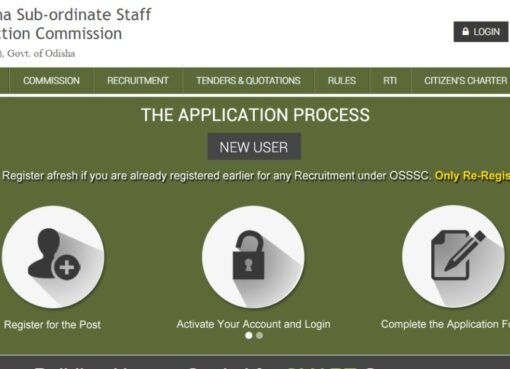Fleet Card Options for Vehicle Shipping Fleets: Maximize Savings and Efficiency

Running a vehicle shipping fleet efficiently means knowing where every dollar goes. Having the right fleet card isn’t just about paying for fuel; it’s a tool for saving money and boosting productivity across your operations.
After examining multiple options such as WEX Fleet Cards, Valero fleet fuel cards, BP Business Solutions, and others, we’ve gathered insights from real-world experiences to present the most reliable choices tailored for your needs. Each option offers distinct advantages—from robust reporting tools to enhanced security features—and understanding these can transform how you manage your fleet daily.
Overview of Fleet Card Options
Fleet cards have become indispensable tools for businesses overseeing vehicle shipping operations. They offer advantages that go beyond just convenience at the pump. These cards help in tracking fuel expenses, managing budgets, and ensuring that drivers stick to fuel-efficient routes. When selecting a fleet card, it is essential to consider which features best serve your fleet’s requirements, from monitoring spending to accessing a wide network of fuel stations.
Major Fleet Card Providers
- WEX Fleet Cards: One of the top players in the market, WEX provides robust reporting tools allowing businesses to track spending meticulously. This aids in identifying patterns in fuel usage and pinpointing areas where savings can be made.
- Valero: Known for its flexibility, this provider offers options tailored for small or large fleets, along with volume-based discounts that can lead to significant savings over time. Valero’s user-friendly platform allows for comprehensive expense management, empowering fleet managers with data-driven insights.
- BP Business Solutions: BP not only focuses on fuel management but also integrates maintenance services into its offerings. This approach ensures that fleets can manage both fuel consumption and upkeep efficiently, ultimately reducing downtime.
- Shell Fleet Solutions: Shell stands out due to its extensive global reach and exceptional customer support. Its fleet card solutions are particularly advantageous for businesses operating across multiple states or countries, offering reliable access to fueling stations along with excellent assistance when needed.
Each of these providers has specific features designed to cater to different fleet needs; therefore, understanding what your fleet requires is crucial.
When determining which fleet card aligns with your operational goals, assess factors like transaction fees, ease of use, and additional services such as roadside assistance or integration with telematics systems. Conducting a cost-benefit analysis tailored to your specific fleet size and usage patterns can help identify potential savings.
Additionally, the right fleet card enhances compliance with company policies on fuel usage and ensures proper maintenance protocols are followed.
As you navigate through these considerations, the next phase involves unraveling the key advantages that these cards provide for optimizing operations and cutting costs in your shipping endeavors.
Benefits of Using Fleet Cards
One of the standout features of fleet cards is their convenience. Accepted at a staggering number of fueling locations across the country, drivers enjoy unprecedented ease when it comes to filling up. This means less time spent searching for a gas station and more time focused on making deliveries, which can naturally lead to increased productivity. When fleets are operating smoothly with minimal interruptions, costs are kept down.
But convenience and control wouldn’t mean much without thorough oversight. That’s where the specialized reporting capabilities come into play.
Reporting
Detailed tracking of fuel purchases is a pivotal benefit that fleet cards provide. With access to comprehensive reports, fleet managers gain transparency that aids significantly in budget management. These reports can highlight trends such as frequent fueling locations or specific times when fuel costs spike, allowing businesses to make informed decisions about their operations or identify cost-saving measures. This empowers teams to strategize their approach towards fuel management more effectively.
In addition to convenience, control, and reporting, there’s another crucial element that fleet cards bring to the table: fraud prevention.
Fraud Prevention
Enhanced security features built into fleet cards notably reduce the risk of unauthorized transactions. Features such as PIN numbers and transaction alerts act as barriers against potential fraudsters. Fleet management can rest easy knowing there are layers of protection ensuring that funds are allocated where needed most, securing not just assets but also peace of mind. Ultimately, these safeguards contribute to overall operational efficiency by guaranteeing that resources are used wisely.
Beyond operational enhancements, these core benefits collectively strengthen a fleet’s performance.
Utilizing fleet cards is more than just a financial decision—it’s an integral part of an effective fuel management strategy for any vehicle shipping fleet. By embracing these tools, businesses can optimize their operations while controlling expenses efficiently.
Cost Savings and Rewards
One of the most appealing aspects of using fleet cards is the opportunity to maximize cost savings through various discounts and reward programs. By selecting the right fleet card, you can position your shipping fleet to benefit from significant financial advantages. Imagine a scenario where your drivers are filling up their tanks, and each swipe at the pump reduces fuel costs—this isn’t just a dream; it’s a reality with the right fleet card choice.
Maximizing Savings
To truly capitalize on savings, make sure you choose cards that offer volume-based rebates and discounts at preferred fueling locations. The more fuel your fleet purchases, the greater the rebates can be. Some fleet cards feature impressive rebates—up to 6¢ per gallon—which may not sound like much individually but can accumulate into substantial savings over time when you consider the hundreds, if not thousands, of gallons that large fleets consume monthly.
For instance, just imagine maintaining a fleet that operates 10 vehicles, each consuming 1,000 gallons annually. That’s a total of 10,000 gallons! A rebate of 6¢ per gallon adds up to $600 a year just by using your fleet card wisely.
Rewards Programs
Another layer to these benefits comes in the form of rewards programs associated with many fleet cards. As your drivers purchase fuel, they accumulate points for every gallon filled. These points aren’t simply numbers; they represent real value that can be redeemed for worthwhile benefits such as additional fuel discounts or gift cards for other services.
It’s worth noting that this system encourages not just fuel efficiency but also promotes careful purchasing habits among drivers. In practice, this means that every time a driver fills up, they’re contributing toward future savings or rewards that could improve their everyday experience or the operational budget of your fleet. Over time, as point systems vary among providers—some offering greater flexibility than others—it’s prudent to assess how those accumulated points can best serve your particular business needs.
Managing Fleet Expenses
Efficient expense management is critical for any vehicle shipping fleet. To tackle this challenge, fleet cards stand as invaluable assets, streamlining every aspect of financial oversight. Utilizing fleet cards provides a clear view of spending while highlighting opportunities for increased efficiency. By harnessing their full potential, fleet managers can drive cost control and enhance operational effectiveness.
Detailed Reporting
Fleet cards offer detailed transaction reports that simplify the monitoring of expenses. With every purchase neatly documented, managers can quickly analyze data trends over time. This analysis becomes useful when spotting unusual patterns in fuel consumption or service charges, alerting you to potential fraud or inefficiencies.
For instance, if a particular vehicle consistently requires unusually high fuel purchases without corresponding trip data, it could indicate misuse or maintenance needs. Leveraging these insights improves accountability and bolsters overall fleet efficiency.
Budget Control
One effective method of maintaining control over expenses is by setting spending limits and purchase restrictions on fleet cards. This approach empowers managers to define specific parameters around fuel types and service providers, ensuring that only authorized purchases occur. Imagine setting daily or monthly caps on fuel spending for each vehicle based on its operational needs. Such limitations help prevent overspending and ensure adherence to your established budget while empowering drivers to make informed decisions regarding fuel and services.
Furthermore, by establishing strict controls over who can utilize the fuel cards and what they can purchase, fleet managers eliminate unapproved transactions that might lead to unnecessary expenditures. Implementing these strategies protects your company’s bottom line and fosters a culture of accountability among team members.
Managing fleet finances extends beyond budgeting; it involves creating an adaptable system that continuously evaluates efficiency while safeguarding against wasteful practices. As we explore further, effective strategies will emerge that enhance operational capabilities across all facets of your business.
Enhancing Operational Efficiency
Enhancing operational efficiency in a vehicle shipping fleet requires not just tools but also thoughtful strategies that align with your organization’s goals. Fleet cards provide more than just consolidated expenses; they serve as a comprehensive management solution that streamlines multiple aspects of fleet operations. Imagine reducing hours spent on bookkeeping each month simply by using a fleet card to manage all fuel-related costs in one straightforward platform. Smart decisions here create impactful results.
Streamlining Processes
The beauty of fleet cards lies in how they simplify day-to-day operations. With features like automated reporting, the burden of tracking manually written records is lifted. Fleet managers can easily generate reports that give them clear insights into fuel usage and trends without sifting through piles of receipts or spreadsheets. As paperwork diminishes, focus naturally shifts towards analyzing data for strategic improvements rather than merely collecting it.
Additionally, universal acceptance means drivers are never left searching for compliant fuel stations while on the road. They can focus on getting their load delivered rather than wasting time looking for ways to purchase diesel or gasoline. This approach frees up time for other critical tasks.
As these systems incorporate real-time data access, immediate insights become available, allowing managers to make swift decisions that drive performance improvements in various areas including route optimization and maintenance scheduling
Read more: https://fullformxpress.com/



